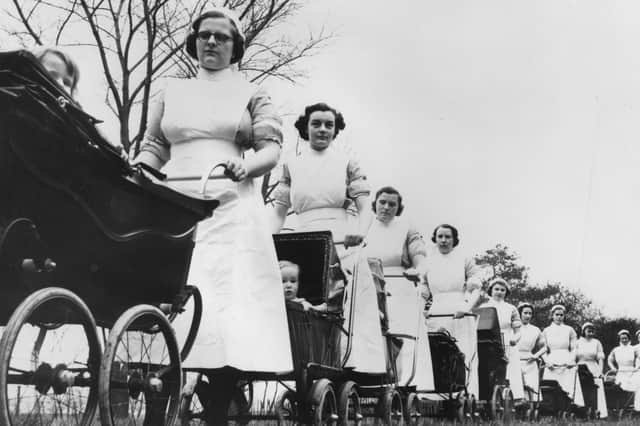Online response to poor dad claiming benefits and wealthy woman seeking a nanny made me stop and think – Hayley Matthews


It's so true and recently I've seen the gap between genuinely helpful comments and remarks by ‘nasty Normans’ widen drastically.
I saw both ends of the spectrum this week on a few Facebook group pages, with the keyboard warriors in full force.
Advertisement
Hide AdAdvertisement
Hide AdTwo very different online conversations made me stop and think. Two people were both seeking help and advice to support their children. However, their situations couldn't have been further apart.
The first post was from a man asking when the school uniform grant would be through, which seems a straightforward question.
I’m not sure why he asked. Maybe his technical abilities aren't great or he'd misplaced the paper but he got one incredibly judgemental comment about taking benefits and then it all kicked off. One remark was something along the lines of “if you can't afford to buy clothes for your kids, then don't have them”.
I was horrified and felt awful for this guy. He did defend himself, stating nobody knows his situation and that he works very hard. Clearly the abuser has never heard of zero-hour contracts, low wages and Scotland's poverty problems. Ignorance is bliss I suppose.
Advertisement
Hide AdAdvertisement
Hide AdThe comment about him taking benefits left me feeling uneasy.
I wanted to jump to the guy’s defence but thought it better not to get involved.
Fast forward a few hours and, sitting having a glass of wine, I read a comment coming from the other end of the financial spectrum. A woman posted looking for a live-in nanny to look after her six kids on a daily basis, cook, do the school run, help them with their homework etc and the post was on a group in a very affluent area of Edinburgh.
No trolling comments, nobody judging this person for not being able to or not wanting to look after her kids and seeking someone to do it for her.
But why? What was the difference? Do we treat people who are better off differently? Of course we do, because we are judgemental.
Advertisement
Hide AdAdvertisement
Hide AdBoth of these parents were simply looking for advice to help them help their families. The comments were completely different to those from the guy asking about the school uniform grant.
One was needing financial support – the other needing tangible, hands-on support. Is it as simple as benefits stigma?
So why do we treat people who are better off, better? I can't answer that. How does anyone know the woman seeking a nanny wasn't selling drugs to kids or that the guy needing the school uniform grant was helping out another family in a really nice way?
But we never know anyone's situation, no matter how smart we think we are. We never know how or why someone has found themselves in the situation they're in. I really wish hate comments didn't exist. People show themselves up on social media sometimes.
Advertisement
Hide AdAdvertisement
Hide AdNeither of the parents are better or worse than the other because they're just trying to do their very best for their children. We all are.
I don't care if you're a millionaire living in a castle or are skint in a slum, if you have kids and you're doing your best, I’ll treat you with respect.
A message from the Editor:
Thank you for reading this article. We're more reliant on your support than ever as the shift in consumer habits brought about by coronavirus impacts our advertisers.
If you haven't already, please consider supporting our trusted, fact-checked journalism by taking out a digital subscription.
Comment Guidelines
National World encourages reader discussion on our stories. User feedback, insights and back-and-forth exchanges add a rich layer of context to reporting. Please review our Community Guidelines before commenting.